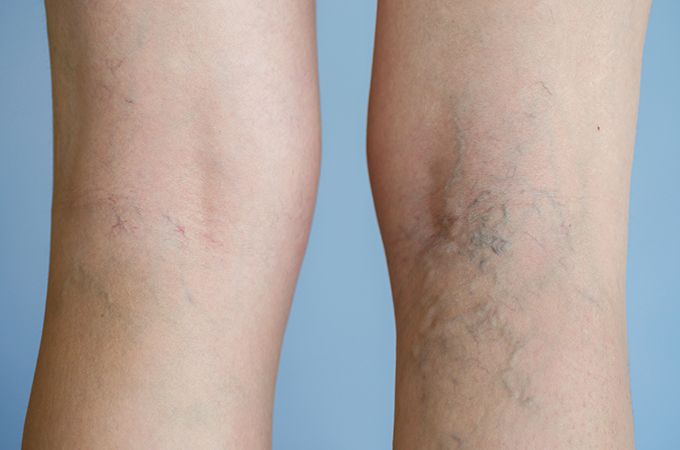
Are your veins a source of concern for you? If you have varicose veins, the issue can go beyond aesthetics. Few US citizens seek medical attention for their veins despite the fact that millions of them have varicose veins and other venous disorders. Do your veins need to be treated by a doctor?
Consider seeing a vein expert right away if you develop any of the following signs or symptoms.
1. Discomfort in the legs
Make an appointment with a vein care specialist if you have pain, throbbing, aching, or heavy sensation in your lower extremities. Because they may indicate chronic venous insufficiency (CVI), heavy legs are a particularly serious symptom. Major complications of CVI might include venous stasis ulcers and other vascular system disorders.
2. Discolored veins
Your legs, feet, and abdomen veins might become discolored. This may indicate that blood is accumulating rather than returning to the heart. It's critical to have those veins examined since this issue may progress to blood vessel pressure buildup and ultimately vascular leakage. Varicose veins can cause vein darkening, although other vascular conditions might also cause it. You could also experience swelling, leg ulcers, thick, hard, and scaly skin, red and darker skin, and vein discoloration.
3. Swelling on one or both sides of the body
Your veins may begin to leak fluid into the neighboring tissues as blood builds up in them. The resulting swelling is a fairly typical varicose vein disease sign. The origin of your swelling and the severity of your vein problems can both be determined during a checkup performed by an experienced doctor.
4. Persistent pain
If you have vein disease, you could have pain that becomes worse the more time you spend standing or sitting. Exercise can sometimes be beneficial. You strengthen your vascular system by walking for at least 30 to 60 minutes each day. Calisthenics exercises, such as squatting, might be helpful if you are unable to walk. Make an emergency appointment with a vein care expert if exercising doesn't help your symptoms. Even if moving around hurts a lot, your vein doctor can help you discover the best treatments.
5. Veins that are twisted or gnarled
These are a symptom of varicose veins and venous insufficiency and are twice as frequent in women than in men. Early varicose vein treatment is essential as it may stop your vein problems from becoming a serious threat to your overall health.
6. Chronic itchy skin
If you have constant itching, it could be due to vein disease. This is due to the fact that CVI may damage veins! Veins cannot be scratched, and scratching the exterior of your body incessantly will not stop the itch. Luckily, a vein expert can provide the necessary treatments to help resolve the issue.
7. Bleeding varicose veins
Occasionally, the varicose veins closest to the surface of your skin may bleed if you cut or bruise your leg. If this occurs, lie down, keep your limb elevated, and put pressure on the affected area. Seek an emergency call if the bleeding doesn't stop.
The bottom line
Vein experts are skilled in identifying the signs of circulatory system problems and venous disorders. They will help in determining the source of your symptoms by a thorough examination, evaluation, and use of a number of diagnostic screenings and tests.
Vein problems can be treated in a number of ways. Your concerns and condition will determine the best course of action. A change in lifestyle may be advised for some patients. The majority of those with varicose veins can benefit from sclerotherapy.


